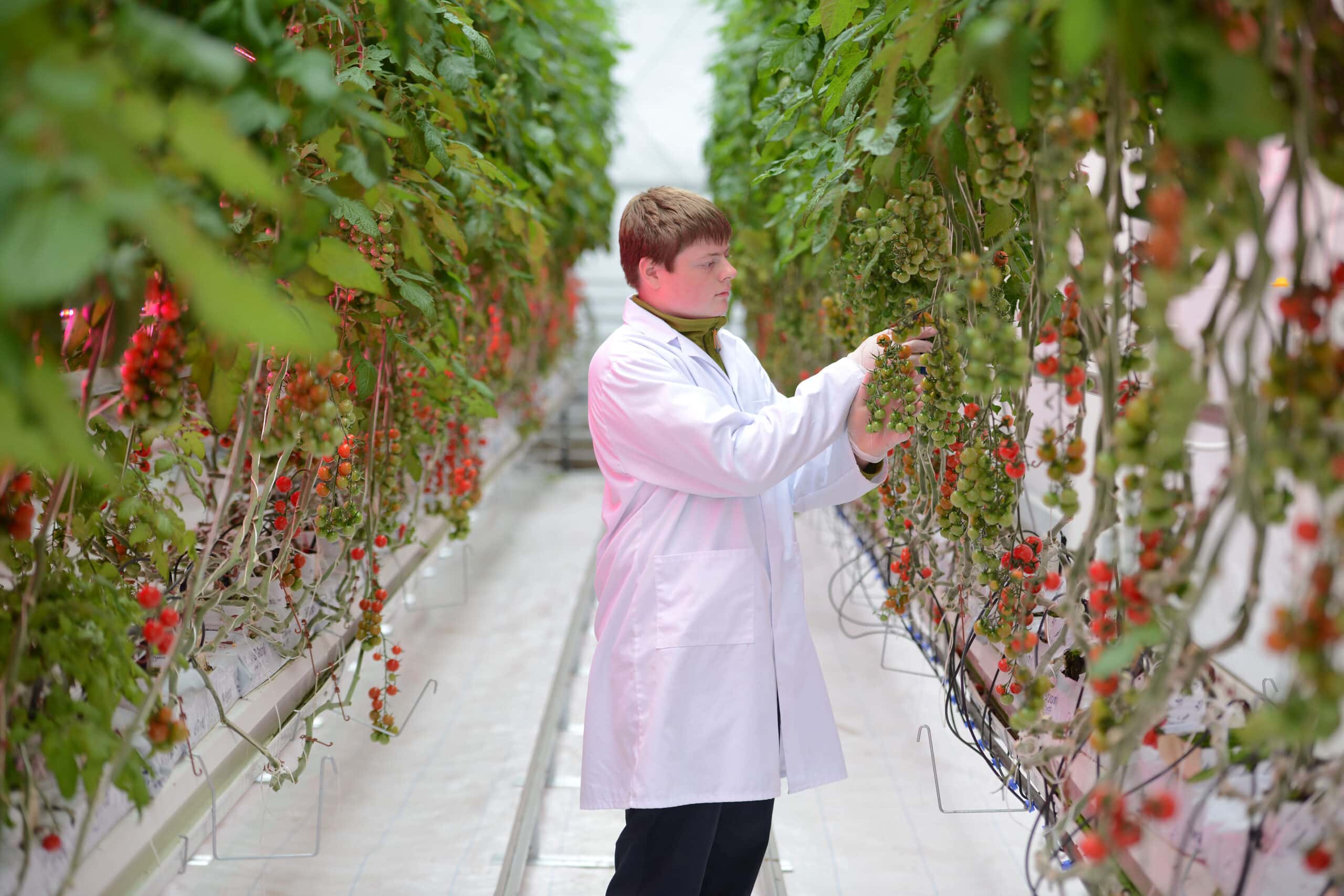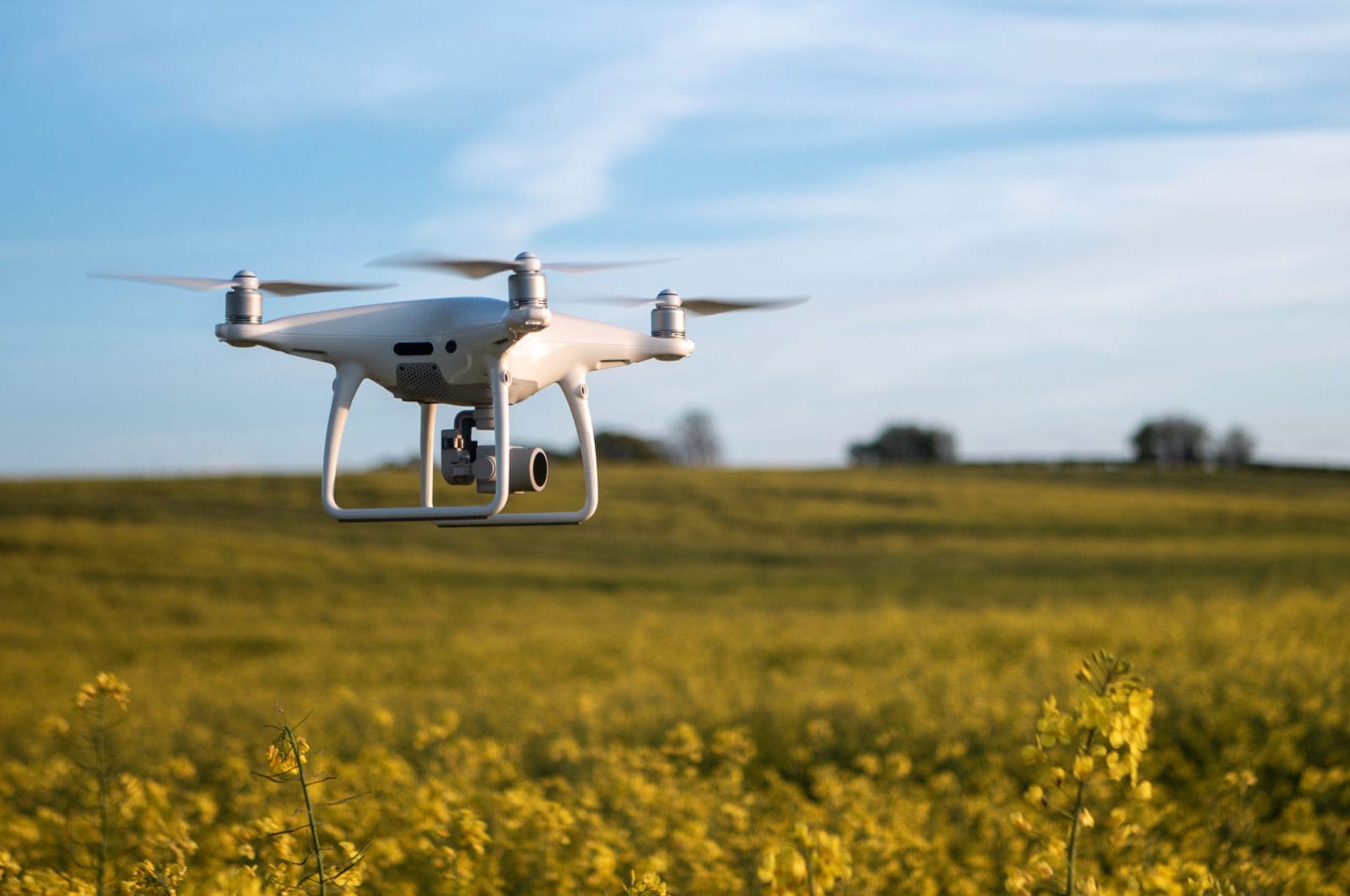By studying a Crop Management foundation degree at UCR, you will gain a well-grounded understanding of the science and management of sustainable crop production systems, and be able to apply this to real-life situations.
In your first year, you will focus on gaining a sound theoretical and practical understanding of sustainable agricultural production through develop your knowledge and skills in the foundations of agricultural science and production, before specialising in Crop Management in your second year.
The Crop Management foundation degree pathway combines the science and principles of a range of crop production methods. Integrated Crop Management will focus on field-based crop production and its holistic approach to the sustainable agronomic management of crops; in particular crop protection, soil health, nutrition, genetics and waste management, whilst making key connections to environmental land management, regenerative agriculture, and associated eco-systems services.
You will also explore the principles and applied practices of protected growing in our state-of-the-art hydroponic vertical farm and glasshouse systems as complementary or alternative soil-less cropping method, which are growing in popularity due to their potential in plant-based alternative and “Urban Agriculture” markets.


Rural business management is integrated throughout your Crop Management foundation degree course, covering areas such as diversification, marketing, and accounting. These skills are hugely important in the assessment, monitoring and management of successful agricultural businesses and are often looked for by employers in the food industry. You will also explore the field-to-fork concept and methods of adding value to produce and the overall supply chain.
Upon graduation you will be armed with the toolkit required to progress the crop industry forward in a role in crop management, as well as be able to progress to the BSc (Hons) in Sustainable Agriculture Top-up degree.


You will gain a wide range of management skills and academic knowledge during your Crop Management foundation degree, which will help you to understand the scientific principles of a range of agricultural enterprises, enabling you to make informed decisions in your business or career.
The Crop Management foundation degree course is broken down into 12 modules (all at 20 credits), which are completed over 2 years.
A minimum of 64 UCAS points from one of, or a combination of, the qualifications below, ideally in a science-based or relevant subject:
Please note: we accept a maximum of 20 UCAS points from GCE AS Levels and that the Welsh Baccalaureate (core) and A Level General Studies will be recognised in our offer. We will also consider a combination of A Levels and BTECs/OCRs.
Non-standard entry: applicants aged 21 years of age or over without standard academic qualifications may be able to demonstrate considerable vocational experience and transferable skills. Their applications will be viewed on an individual basis to assess suitability. Any applicant who has not received certification for prior learning experiences, but has worked within the discipline, will also be considered. In some instances, applicants may be asked to attend an interview or complete a written assessment to support their application.
Contextualised Admissions: to support access and participation in Higher Education, University Centre Reaseheath operates a contextualised admissions policy, which allows reduced offers to be made to students with certain characteristics and/or social background. Further information can be found in the UCR Contextualised Admissions Policy, available on the website.
International Students: This course is not accepting applications from students requiring sponsorship for a Student visa. If you do not require sponsorship please contact UCRAdmissions@reaseheath.ac.uk for further information.
At Level 4 all Sustainable Agriculture students will study a suite of core modules which will provide the foundations in agricultural science and production to aid specialisation at Level 5. Modules will include:
At Level 5 students studying the Sustainable Agriculture with Crop Management pathways will study:
Overall workload
Your overall workload consists of class contact hours, independent learning and assessment activity, plus field trips. Your actual contact hours may depend on which optional modules you select, but the following information gives an indication of how much time you will need to allocate to different activities at each year of the course:
Year 1: 30% of your time is spent in timetabled teaching and learning activity
Teaching, Learning and Assessment: 360 hours
Independent Study: 840 hours
Year 2: 25% of your time is spent in timetabled teaching and learning activity
Teaching, Learning and Assessment: 260 hours
Placement: 150 hours
Independent Study: 790 hours
Class sizes are usually up to 20 students.
Assessment Methods
Module assessments are designed to encourage both academic and workplace skill development. They include a wide range of coursework-based assessments in both independent and collaborative formats including reports, data processing, presentations, academic posters, lab-reports, seminar discussions, literature reviews and portfolios. Assessments will range in size and will be spread throughout the year to give you the greatest level of support and feedback whilst maintaining an even, manageable workload.
Examples include a short lab-report as part of the Integrated Crop Management module in which you will develop the skills to undertake soil analysis and report key results, whilst your digital communication skills will be challenged in a series of blog posts on the market opportunities for alternative crops as part of the Protected Cropping module. To investigate the crop industry further, you will conduct an Applied Crop Investigation, in which you will examine the latest research in an area of crop management, develop a research methodology, conduct statistical analysis and later produce a scientific poster to share the results of your group investigation.
Feedback
Feedback is supplied via Turnitin or directly from the module tutor. The majority of submissions are made via Turnitin and feedback for coursework is provided within twenty working days after the submission date.
Written feedback will be supported verbally should the student require clarification. Formative assessment feedback will be provided at the time of completion where possible, with more detailed summative feedback for reports.
Students will be able to access course timetables for the academic year in September.
Timetables are subject to change, but most students can expect to spend 3-3.5 days per week on campus.
During the level 5 module, Work Based Learning for the Land-Based Industries, students are expected to complete at least 150 hours of industry placements. This is completed alongside lectures and students are expected to attend all timetabled sessions.
This is a compulsory module; students are expected to secure the work experience opportunity with guidance and support from agriculture staff.
Financial arrangements will be left to the discretion of the employer, to be agreed with the student, where significant learning takes place and training is provided. The value of this experience must be taken into consideration.
Tuition Fees
As a student at UCR, you will have two main costs to meet; your tuition fees and living costs.
Our full-time tuition fees for UK and EU students, entering University, can be found on our student finance page. These fees are charged for each academic year of a course and are set by the college annually.
Tuition fees for international students can also be found on our student finance page.
Additional Costs
All resources will be available through the college library or VLE as E-Books, therefore there is no formal requirement to purchase textbooks. Although a list of recommended texts can be provided. We promote the use of online journals, webinars and podcasts.
Some shows and field trips may have small admission fees (usually £10-20). There may also be opportunity to attend industry events and conferences, the costs of which vary depending on event, but of course are optional.
Students may also get the opportunity to join a UK or international study tour, which usually cost £150-£1,500 depending on location and duration.
Additional industry qualifications may be made available to students at an additional cost. We actively work with our industry training partners to deliver additional qualifications at competitive prices.
Equipment Costs
Students are responsible for everyday stationary, access to a laptop and PPE (steel-toe wellies, overalls and warm clothes) for external visits. For biosecurity purposes, all PPE for the campus farm will be provided.
Warm clothing and waterproofs are important for an external visit.
Prices of equipment are subject to change dependent on retailer.
Apply directly through UCAS
SAC1
A minimum of 64 UCAS points
September 2025
Full-time: 2 years
Here you will find useful information about the services and support available at University Centre Reaseheath. Click to expand each item:
University Centre Reaseheath is committed to providing additional financial support to those who need it. To find out about the bursary schemes available visit the additional financial support pages.
For students to get the best out of their time at University Centre Reaseheath, we must both recognise that we owe obligations to each other. These obligations are set out in our UCR Student Contract. Before you accept an offer of a place at University Centre Reaseheath, it is important that you read these contract conditions. If you are going to be living in Halls of Residence, you will also need to read the Student Accommodation Licence Conditions. Both of these contracts can be found here.
Click here to view the University Centre Reaseheath Student Protection Plan.
All UCR students are given the opportunity to apply for residential accommodation. First year students are guaranteed accommodation and this offer is made to all applicants who live more than a reasonable daily travelling distance from Reaseheath (providing you have applied before the UCAS equal considerations deadline. For full details on our halls of residence visit our accommodation page.
We have a team of dedicated professionals on hand to offer you support. These include our Student Services Team, Inclusive Learning Team, Library and Learning Resources Team and the Reaseheath Careers Service. You can find more information on the support provided at Reaseheath on our support page.
University Centre Reaseheath is proud to welcome international students. For more information, please visit our international students page.